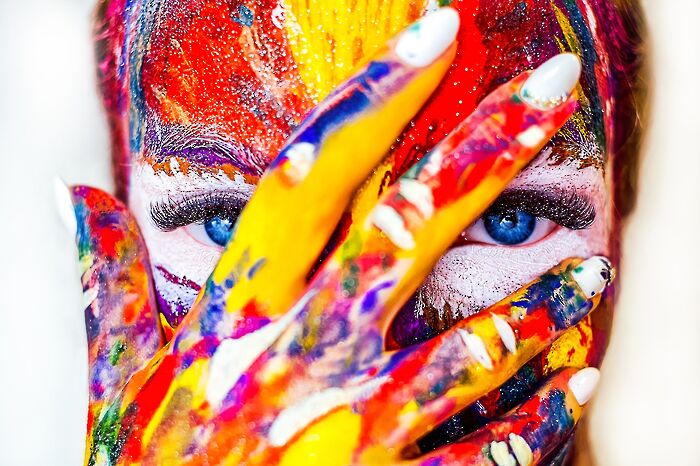‘Normal’ me vs ‘Cambridge’ me: constructing a fashion identity
Caterina Bragoli discusses creating a fashion identity at university, and how the realities of Cambridge can make this challenging

Describing the reality of life in Cambridge to people is both daunting and challenging. The best conclusion that I’ve arrived at in my first year here is a feeling of being two versions of myself: the ‘normal’ me versus the ‘Cambridge’ me. This distinction certainly materialises in the way I dress here, as I undeniably feel the weight of this perfectionist culture steeping into various aspects of my life. It makes fostering these dual personae increasingly difficult.
Everyone is placed on an academic pedestal, so why not seek an image that no one can replicate?
This notion of the ‘Cambridge me’ seems to be felt by an overwhelming consensus of students here. Cambridge student Molly comments that ‘There is so much pressure, particularly in first term, to establish an image for yourself’. Cultivating an image at university isn’t exactly Cambridge-specific: wherever you go, people will judge and categorise you according to your aesthetic. It’s a notorious cliché. Perhaps the difference here is the atmosphere of perfection which serves to facilitate an almost crushing pressure to be something special.
Clothing undoubtedly shapes this image, as the first thing that meets the eye. You can instantly distinguish the various archetypes, and once categorised in a specific bracket, it can be hard to escape. It is suffocating, trying to fashion-through-fashion the person that either you want to be or - let’s face it - what you think you should be. Everyone is placed on an academic pedestal, so why not seek an image that no one can replicate?
Although, the road to cultivating the perfect image isn’t without its hurdles. One such obstacle is the stereotyping associated with your subject, creating further constraints. As an English student, Molly notes the implications of this. ‘There is a need for individuality of style’, she says, ‘a desire to stand out and yet ‘English students’ as a species are recognisable from a mile off’. English students are known for their ‘penchant for three quartered trousers, culottes and anything that looks like pyjamas’, yet why has this developed? It attests the pattern of conformity that replicates itself in a vicious cycle: not deviating from a stock image almost becomes a form of safety. Does Sidgwick suddenly seem easier to tackle when you’re following a set precedent?
Everyone is placed on an academic pedestal, so why not seek an image that no one can replicate?
Of course, there are students who embrace the ‘need for individuality of style’, which in itself purports an idea of the ‘Cambridge’ self. Fashion will always be a mode of expression, an artistic license and a way to walk your own path, and that’s still applicable to the Cambridge environment. However, this feeling is not indistinguishable from a perfectionist culture: from personal experience I have felt myself become increasingly more conscious of the way I am presenting myself.

This is due to a combination of factors, whether it being the people I could see the moment I vacate the comfort of my room, or the way I’m then perceived – the list is endless. Walking out of my room in less than what constitutes ‘perfection’ in my eyes is a struggle, and almost feels as though I am displaying an intimate and personal part of myself. My overall appearance has morphed into a kind of shield.
This isn’t solely felt by me: Molly equally expresses a similar sentiment. ‘I feel like I work best when I can go into the library with my head held high and confidence in my appearance’, she comments. I have a shared experience of this: it’s far easier to walk into a study space with fellow students knowing that you look good, rather than leaving room for judgement. The reality is that no one really cares, yet there’s still an unexplainable feeling of security when you look how you would ideally want to.
The effort I put in to dressing is paradoxical: more effort I find myself putting in to look good, the more I feel like I’m blending in and achieving the invisibility that I find myself craving so often here. Looking presentable just ensures that I fit the perfect mould and high standards that everyone is accustomed to, and as a result I become interchangeable.
Fashion then becomes streamlined to fit an ideal, which is the exact antithesis of its purpose.
Because of this, the image of perfection that I for one continually strive for somehow feels less tangible as the days go on. When walking down the street ensures seeing an influx of similar pieces of clothing, the uniform atmosphere cultivates a solitary image of perfection for a lot of students. Fashion then becomes streamlined to fit an ideal, which is the exact antithesis of its purpose.
But it’s hard to embrace a more accepting attitude when what you feel best in is somehow rejected in favour of the relative images extolled above everything else. Hence why I now feel as though I am facilitating two personae: I know how to dress when in Cambridge, and I know how to dress when at home.
Part of this far-reaching image of perfectionism is due to the hard-hitting realities of Cambridge fashion that are habitually overlooked. Formal hall etiquette is both exciting and incomprehensible: dressing up in oftentimes lavish clothing is indulgent to say the least, but is this just another instance of the ‘Cambridge self’? Are we, through clothing, reaching for what we think we ought to be? I know that when donning my gown, I feel as though I’m trying to imitate superior academics. The gown essentially swallows me whole – emotionally and physically – and makes grappling with my position here that much harder.
The way that I express who I am is through my clothing, and I often feel silenced here. This may be ironic when considering how forward-thinking so many of the students here are, and how accepting university society is becoming. However, the inescapable reality of everything in Cambridge being just slightly out of reach for the vast majority of students undeniably permeates into the world of fashion.
 Features / Meet the Cambridge students whose names live up to their degree9 September 2025
Features / Meet the Cambridge students whose names live up to their degree9 September 2025 News / Student group condemns Biomedical Campus for ‘endorsing pseudoscience’10 September 2025
News / Student group condemns Biomedical Campus for ‘endorsing pseudoscience’10 September 2025 News / Tompkins Table 2025: Trinity widens gap on Christ’s19 August 2025
News / Tompkins Table 2025: Trinity widens gap on Christ’s19 August 2025 News / New left-wing student society claims Corbyn support11 September 2025
News / New left-wing student society claims Corbyn support11 September 2025 Science / Who gets to stay cool in Cambridge?7 September 2025
Science / Who gets to stay cool in Cambridge?7 September 2025









